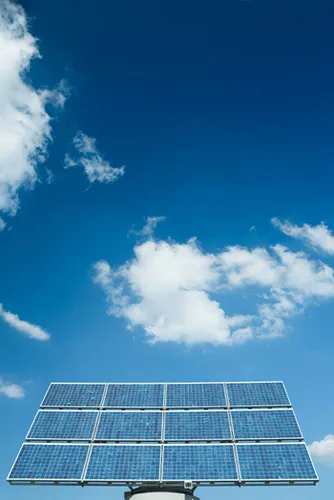
ADB loans a whopping $100m for energy efficiency project in China
The project will incorporate the first large-scale industrial use of solar thermal technology to generate electricity in the country.
The Asian Development Bank is extending a $100 million loan for an energy efficiency project in Shandong province in the People’s Republic of China that will reduce harmful emissions including carbon dioxide and incorporate the first large-scale industrial use of solar thermal technology to generate electricity.
The ADB Board of Directors has approved the assistance for the Shandong Energy Efficiency and Emission Reduction Project. Along with financing state-of-the art energy technologies at two private companies, it will raise the capacity of government and financial institutions to plan, invest in, and manage further energy efficiency improvements. Slashing the use of coal for power generation and industrial production will help mitigate respiratory diseases and scale back the use of fossil fuels.
“Shandong has the second largest level of industrial output of all provinces in the PRC and is heavily dependent on fossil fuels,” said Shigeru Yamamura, an Energy Specialist in ADB’s East Asia Department. “This project, which incorporates an innovative financing mechanism, will reduce energy intensity and emissions, as well as helping to spur future investments in energy efficiency.”
At present there are major financing barriers for large-scale energy efficiency investments that have held back badly-needed upgrades in the PRC’s industrial sector. The financial intermediation model chosen for the project will catalyze additional domestic private equity and debt finance, with the revolving nature of its financing. It follows a similar financing mechanism used by ADB to support energy efficiency retrofits in Guangdong Province.
Assistance will be initially channeled to the privately owned Golden Yimeng Group and Dongying Lufang Metallic Materials. Golden Yimeng will use the funds to expand a biogas capturing system to generate power and supply heat, as well as to produce organic fertilizers. It will also use steam preheated by solar parabolic concentrators to supply a six-megawatt electricity generating steam turbine―the first such large-scale industrial solar application in the PRC.
Dongying Lufang Metallic Materials, which is among the top six copper producers in the PRC, will use funds to supplement the development of a zero coal copper ore smelting furnace. This will both reduce emissions and set a benchmark standard for future copper smelting technology.
The total investment cost is estimated at $553.2 million with $141.8 million earmarked for the first batch of subprojects. ADB’s loan from ordinary capital resources has a 15-year term, with a 10-year grace period, and interest determined in accordance with ADB’s LIBOR-based lending facility.
Counterpart equity finance for the first subprojects will be provided by Golden Yimeng and Dongying Lufang Metallic Materials. The Shandong Provincial Government is the executing agency for the project which will run from 2011 to 2016.
Photo from solarpowerforyou








![Cross Domain [Manu + SBR + ABF + ABR + FMCG + HBR + ]](https://cmg-qa.s3.ap-southeast-1.amazonaws.com/s3fs-public/styles/exclusive_featured_article/public/2025-01/earth-3537401_1920_4.jpg.webp?itok=WaRpTJwE)
![Cross Domain [SBR + ABR]](https://cmg-qa.s3.ap-southeast-1.amazonaws.com/s3fs-public/styles/exclusive_featured_article/public/2025-01/pexels-jahoo-867092-2_1.jpg.webp?itok=o7MUL1oO)









 Advertise
Advertise


